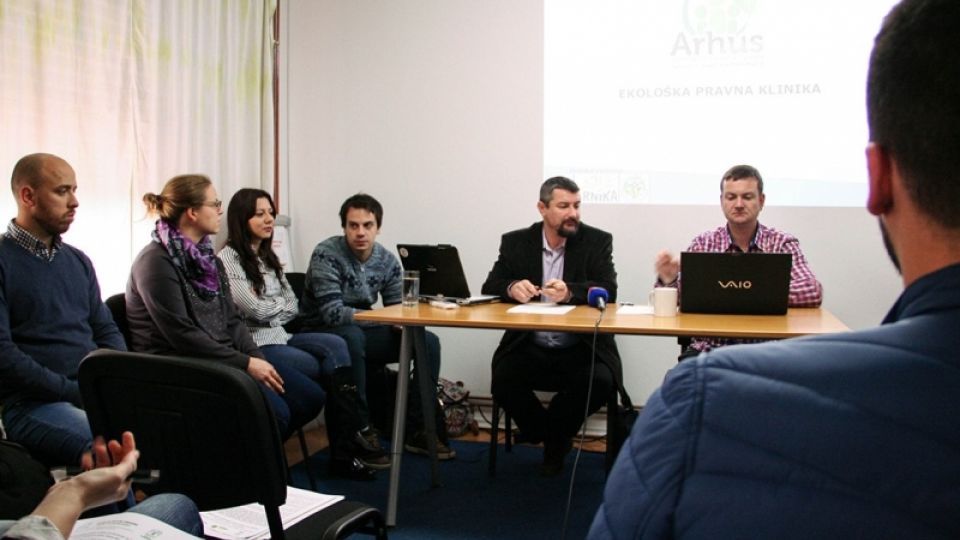More than thirty law students passed a special course. They provided almost two hundred free-of-charge consultations for the citizens together with their mentors from Center for Environment. As a result, the community of Lozionicka Street in Banja Luka has strong legal support in their struggle against storage of bauxite in their residential area. Young lawyers also helped citizens send an initiative for Borik to stop construction of an Orthodox church at important green area. They provided legal arguments against the brutal transformation of the natural island, Ada, on Vrbas River into a commercial attraction. It was all possible thanks to the “Environmental Law Clinic," a joint project of Arnika from the Czech Republic and Centre for Environment from Banja Luka. This clinic was funded by the Transition Promotion Programme of the Czech government. The project educates law students and involves them into civil society campaigns for benefit of the environment.
“Although storing of bauxite ore in the vicinity of residential houses contradicts several laws, responsible authorities did not pay any attention to such an environmental hazard. Ordinary citizens without legal education can hardly face unscrupulous businessmen. Support from the Environmental Law Clinic gave us enough strength to defend our rights,” says Rajna Kolundžija, representative of the street.
Despite partial successes the fight is still going on. This is prolonging the agony of residents, and the final decision has been postponed as to who the recently elected new mayor is. The Environmental Law Clinic provided help and consultations in many cases.
“The main goal of the project was to educate students of the law in order to be able to support civil initiatives for environmental protection. I think it was achieved,” says Viktor Bjelic, project manager from Centre for Environment.
“Civil society in Bosnia is more fragile than in the Czech Republic. Violations of the law and cases of damage to the environment are more serious. One of the reasons is that universities do not teach environmental law. I hope we brought an inspiration to the young lawyers and attracted their attention to defending public interests as a course for their future careers. The civil society and nature need thir strong advocates,” says Martin Skalsky from Arnika, the Czech Republic.
From the 34 students involved in the educational program, the 5 best were chosen to take part in the Environmental Law Clinic. As a part of their education, they absolved a study tour to the Czech Republic having an opportunity to visit the state institutions - like supreme administrative court or ombudsman, and they were able to learn from civil society campaigns and experienced of the attorneys of environmental law.
“Involvement in the project of the Environmental Law Clinic has allowed me to learn what are the main concerns of citizens and how I, as a lawyer, can help them. I got opportunity to work on specific cases to complete my mainly theoretical education with practical experience,” says Sabina Begić, student and intern form the Centre for Environment
The young lawyers together with experienced activists from the Centre for Environment answer every day questions on spatial planning, noise limits, air pollution, waste management, water resources, energy efficiency, and greenery in cities as well as other more specific queries.
“From January till October, the Environmental Law Clinic sent 101 requests for access to information concerning the environment. The state authorities are not very used to performing their legal duties. Therefore we are forced to send many notes marked 'urgent' and complaints. The record in rejecting to provide information is held by the Ministry of Industry, Energy and Mining against which we had to even launch a lawsuit to receive a required document. However, an important improvement was observed as in February we sent 10 urgencies which is the same number we sent the second half of the year,” says Vanja Junuzović, a lawyer from the Center for Environment.







